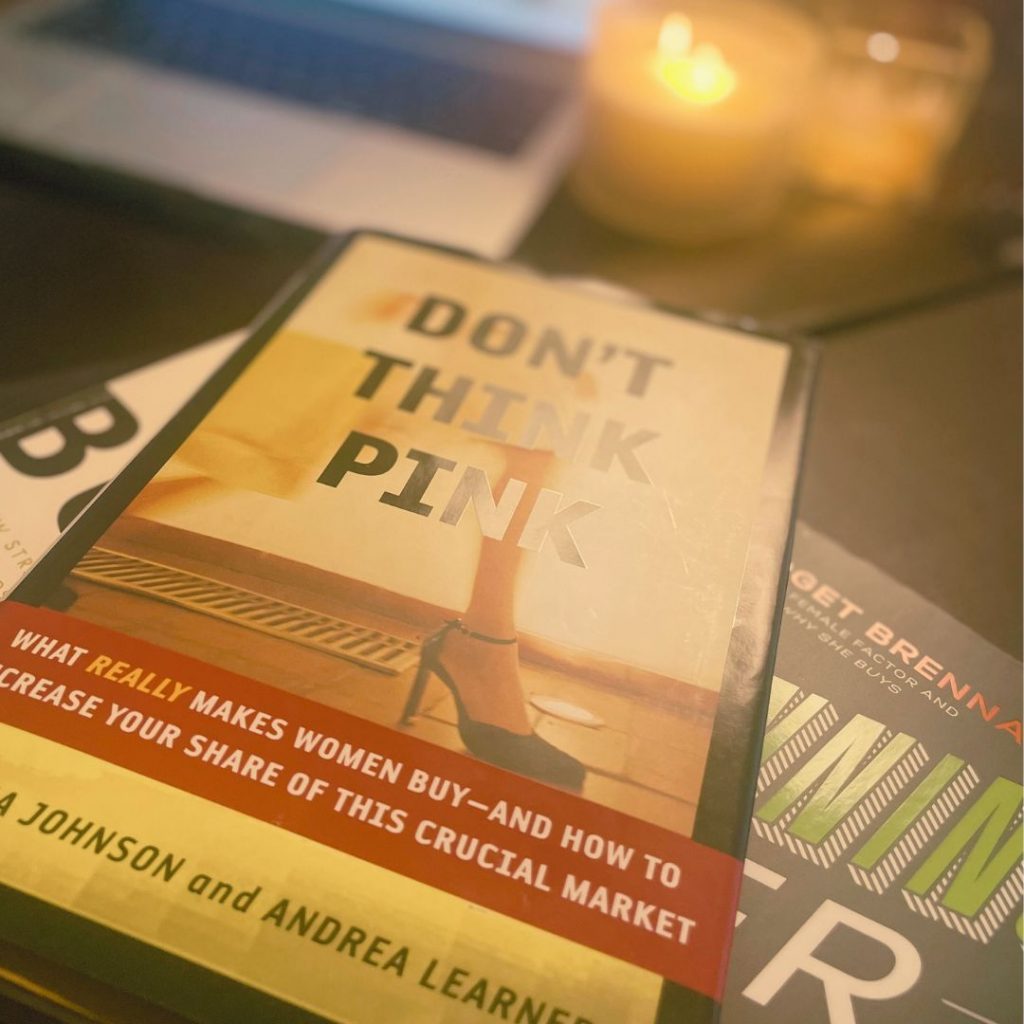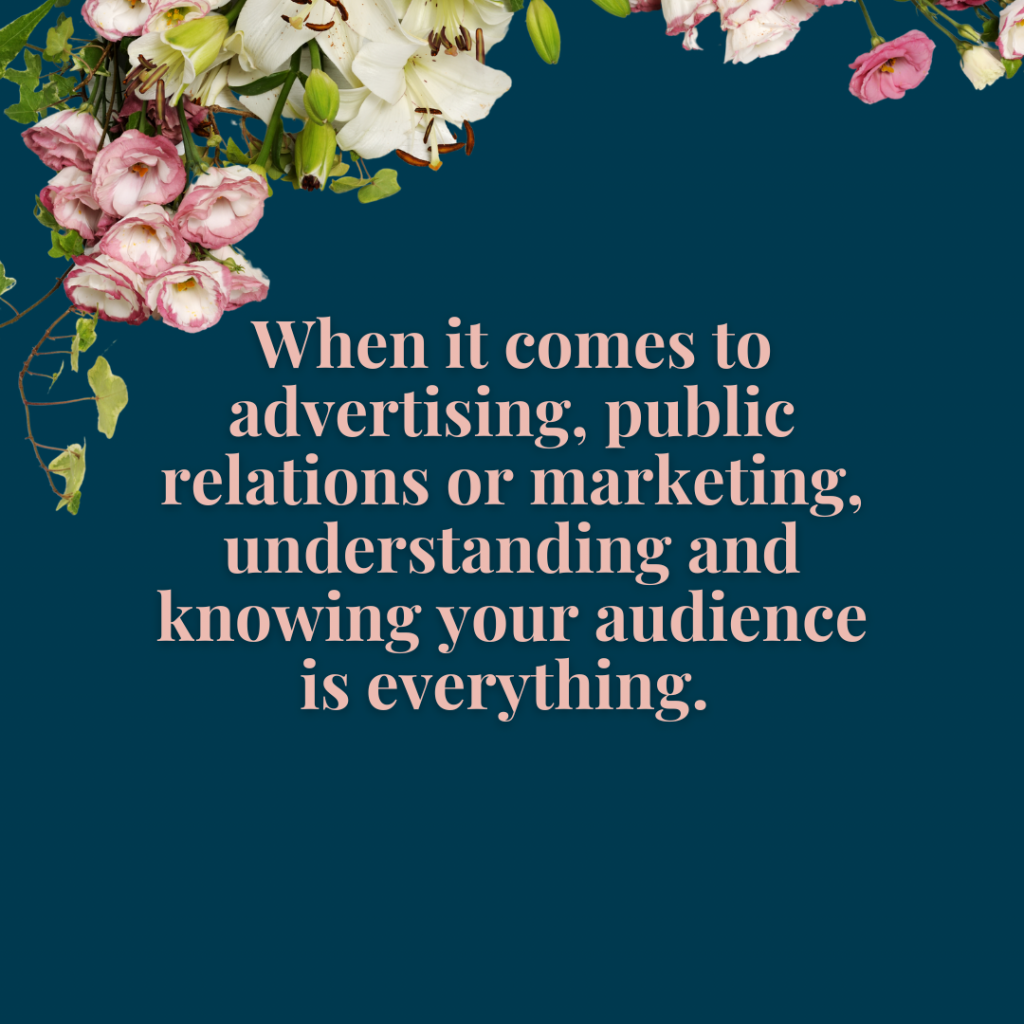The first rule of marketing to women: Don't stereotype.
If you Google the phrase “marketing to women,” my bet is that one of the first tips you’ll see is this: Don’t stereotype. One could argue that this is a universal marketing rule – no matter the gender of your target audience. But entire books have been written about not stereotyping women, including the iconic Don’t Think Pink by Lisa Johnson and Andrea Learned. If you want to start building your knowledge about best practices for marketing to women, it’s a fabulous resource.
My first encounter with the topic, however, was entirely different. I distinctly remember one of my first college lectures from the great Doug Newsom.
If you Google the phrase “marketing to women,” my bet is that one of the first tips you’ll see is this: Don’t stereotype. One could argue that this is a universal marketing rule – no matter the gender of your target audience. But entire books have been written about not stereotyping women, including the iconic Don’t Think Pink by Lisa Johnson and Andrea Learned. If you want to start building your knowledge about best practices for marketing to women, it’s a fabulous resource.

My first encounter with the topic, however, was entirely different. I distinctly remember one of my first college lectures from the great Doug Newsom.

The Plot Twist: Doug was a woman.
And a brilliant one at that. If Edward Bernays was the “father of public relations,” Doug was the mother. Doug taught me so many lessons through the years and she became a dear friend and mentor. During that first lecture, Doug shared her many life experiences being mistakenly referred to as a man. Some of them were funny. Others – not so much. The point of her stories? We should never assume. We should always challenge our thinking. We should always verify and never stereotype.
“People are much deeper than stereotypes. That’s the first place our minds go. Then you get to know them and you hear their stories, and you say, ‘I’d have never guessed.'” – Carson Kressley
What's the better way?
It’s actually one of my favorite marketing tools: segmentation. Custom research is always the best way to identify segments of women who are most likely to purchase your product. A good market research firm will help you define much more than demographics. They can also help you uncover mindsets, emotions, behaviors, why people buy, what triggers the purchase, and who influences the purchase decision.
What if primary research isn't an option for me?
If you’re stuck and don’t have the time or the budget for primary research, a good starting point is this article by Harvard Business Review. The article identifies 6 key female consumer segments.
- Fast Tracker: Economical and educational elite; Seeks adventure and learning
- Pressure Cooker: Married with children; Feels ignored and stereotyped
- Relationship Focused: Content and optimistic; Isn’t pressed for time; Has ample discretionary income; Focuses on experiences, not products
- Managing on Her Own: Single again – divorced or widowed; Seeks ways to form connections
- Fulfilled Empty Nester: Largely ignored by marketers; Concerned about health and aging gracefully; Focused on travel, exercise and leisure
- Making Ends Meet: No money for beauty or exercise; Majority lack college education; Seeks credit, value and small luxuries
Note how the segments are defined by mindsets, behaviors and life stage – not simply gender and age. The next step? Personalizing your marketing to appeal to your segments. That’s a big concept to unwrap – and something that will likely take multiple blog posts to discuss.
For now, I hope you walk away with this critical lesson from the woman named Doug:


Personal note: As I mentioned above, Doug Newsom was a close friend and mentor. I was also fortunate enough to be the recipient of a scholarship in her name while I was a college student. I was honored to speak at two retirement parties that were held for her. I remember asking her one day what she would be doing if she wasn’t in public relations. She said, “Probably writing steamy romance novels.” She had the best sense of humor and was one of the most honorable, ethical people I’ve ever known. Sadly, Doug passed away in 2021. Her legacy lives on in those of us who continue to apply her teachings in our professional and personal lives today. I miss you, dear friend.
